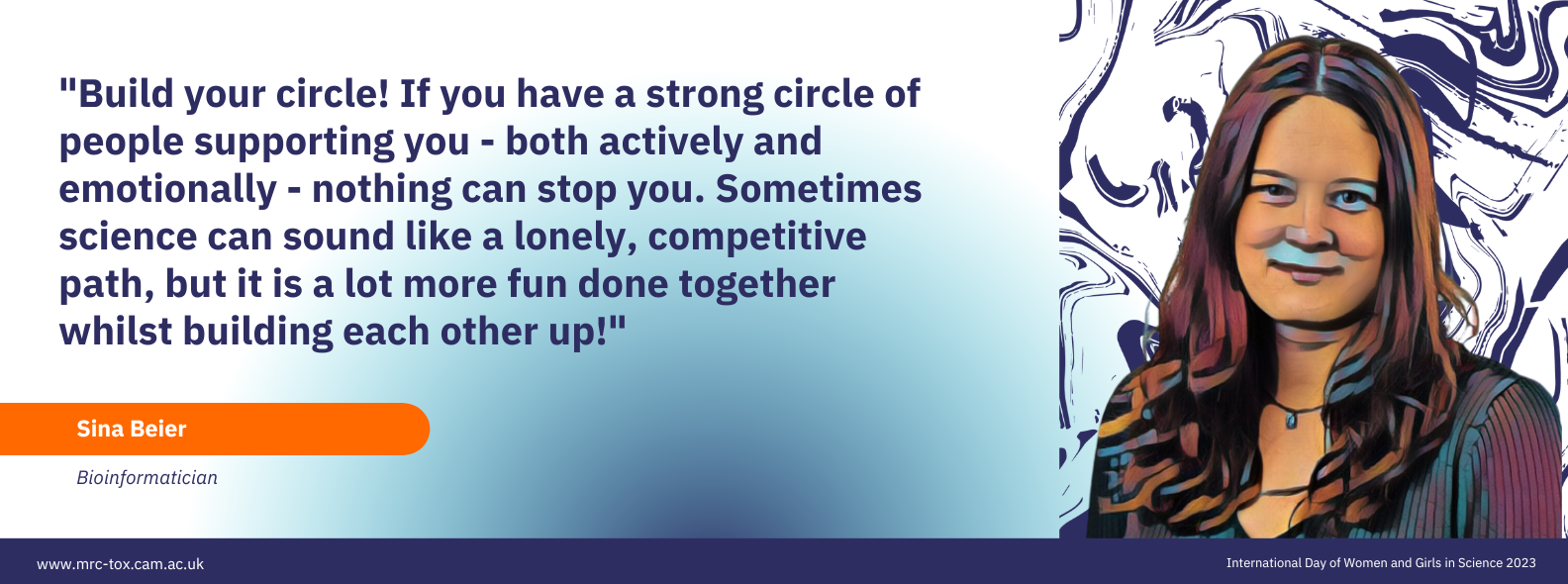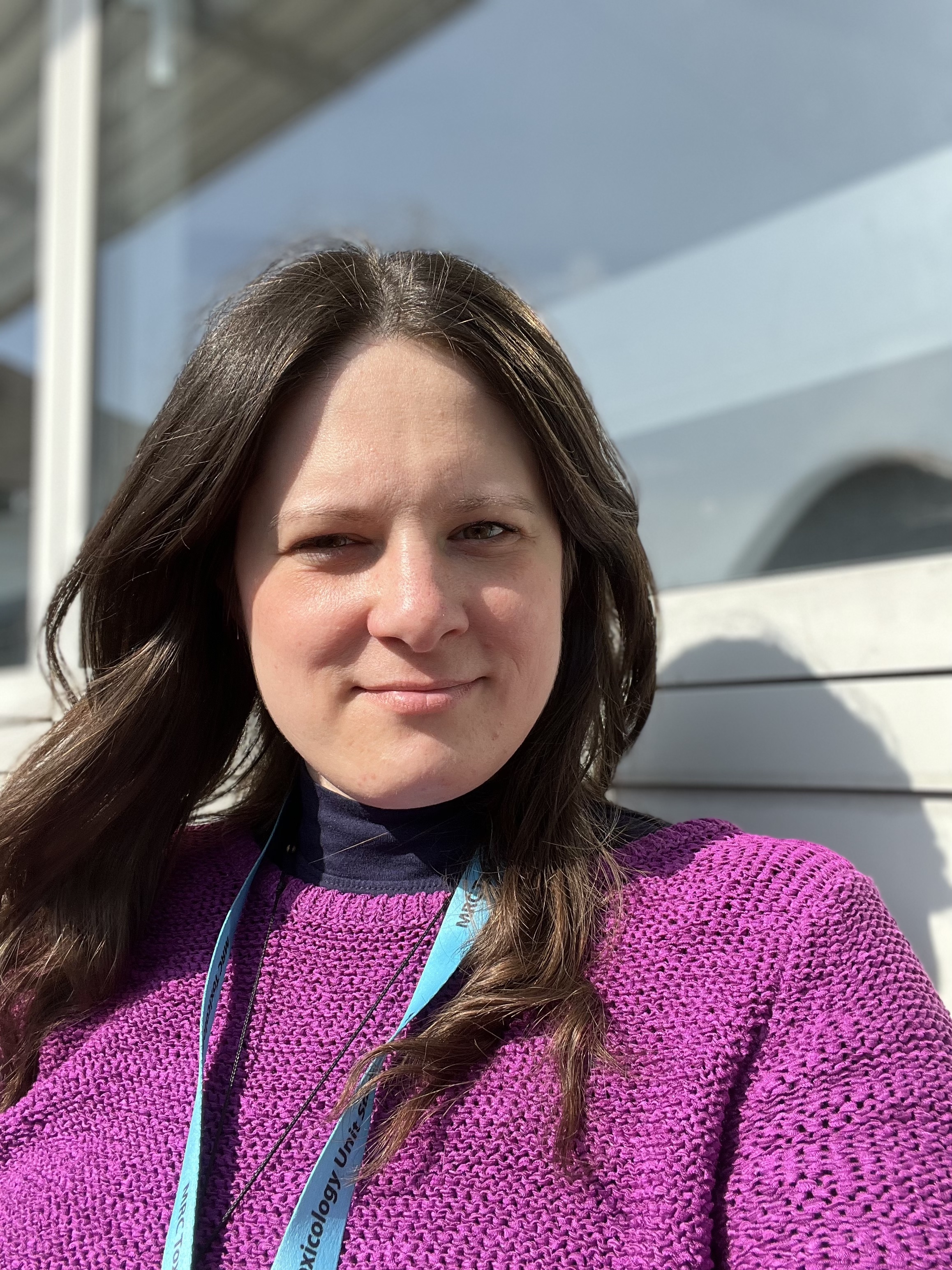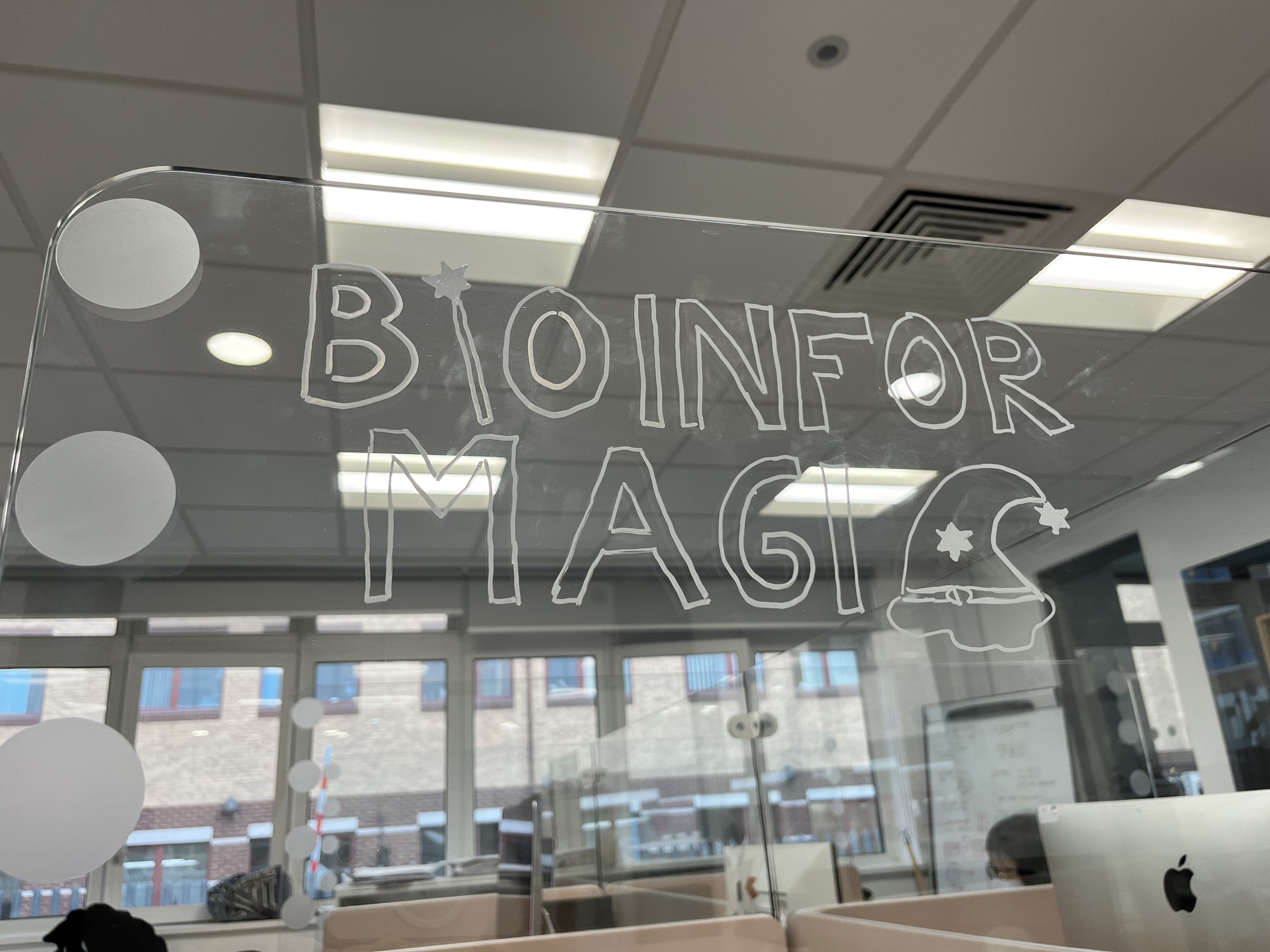To mark International Day of Women and Girls in Science 2023, we are sharing profiles of some of the women from the MRC Toxicology Unit highlighting their careers, experiences, passions and more. Today we want to introduce you to Sina.
Who are you and what is your role?
My name is Sina and I am a Bioinformatician at the MRC Toxicology Unit in the Bioinformatics Core Facility. I help other researchers to analyse their biological data. Sometimes I will do that for them, and other times I help them to develop new methods and teach existing methods to those who want to do it themselves.
My favourite type of biological data is genomic or transcriptomic sequencing data. There is still so much we can learn from it, and it will never stop being cool that something so simple as a few nucleotides is essential for all life!
Did you always know you were going to be a scientist?
I was always curious about how the world around me works, so when I decided at 14 years old that I wanted to become a bioinformatician, it was probably not too much of a surprise. I never wanted to be in a job that would eventually become repetitive and 'boring'. Science allows you to learn new things and even be a part of creating new knowledge, and that will never stop being exciting to me.
What has your career in science looked like so far?
My first step into science was working part-time in a lab as an undergrad student. Working with the PhD students and postdocs convinced me that this path was for me to pursue science further. However, before that I joined a bioinformatics start-up called Computomics for a year, where I got to work as an industry scientist rather than an academic one. It gave me a head start in learning a few things that you don't get to experience in academia.
After a year of working in industry, I started by PhD focusing on metagenomic data analysis. I met many great people and finally felt like a scientist. I then moved to the UK and joined the Wellcome Sanger Institute as a postdoc just as we went into lockdowns, and learnt many things I had not planned on whilst working from home.
In August 2021, I joined the MRC Toxicology Unit where I collaborate with many people and work on various topics, so I have reached my goal of never feeling bored at work and always learning new things.
What have been the biggest challenges you have faced being a woman in science?
I was lucky to have a lot of strong support to do what I wanted and not let people who think that science, and especially computer science, is 'not for girls' stop me. There have been a few run ins with people who were prejudiced against me for being a woman in my field. Still, in most cases, that gave me a chance to prove their opinions about women wrong. None of them had the opportunity to influence my progress negatively, but I know I have been lucky in that regard. I have tried to choose the people I surround myself with carefully, so now I am surrounded by supporters of women in science instead.
What has been the proudest moment of your career so far?
Of course, my PhD viva is high on that list - especially from my family's response. But for me, it was publishing my first paper. This felt like the step that made me a real scientist finally. I was co-first author with another great woman in science, and we wrote about a project we has shaped together. I am still delighted that this paper got to be my first. While I have done many significant projects, this will always have a special place in my heart.
What do you enjoy doing outside of work?
I enjoy long walks in the Botanical Gardens here in Cambridge, spending time with family and friends, gardening on the allotment and dancing. Even when I'm relaxing, I am always happy to learn new things, try new crafts and see things grow.
What advice would you share with other women in science or girls interested in getting into science?
Build your circle! If you have a strong circle of people supporting you - both actively and emotionally - nothing can stop you. Sometimes science can sound like a lonely, competitive path, but it is a lot more fun done together whilst building each other up.




